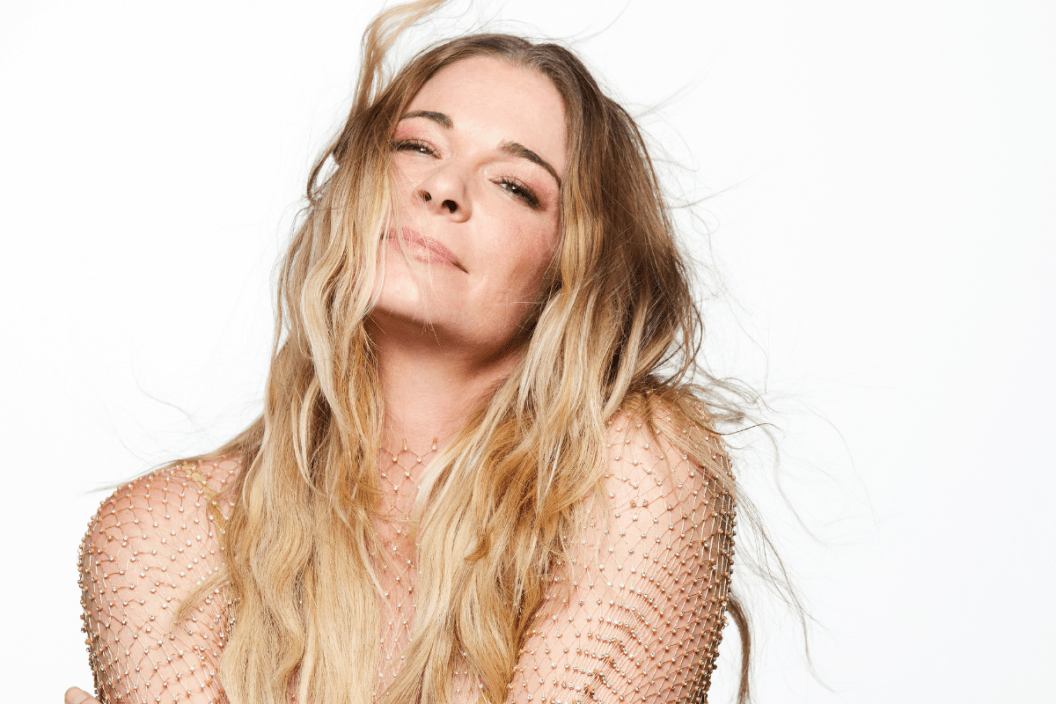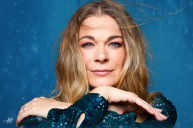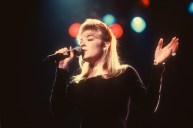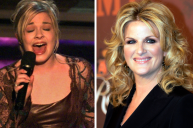When she was just 11 years old, LeAnn Rimes made a decision that would change her life. After her father tossed a demo of a song written by singer-songwriter and radio host Bill Mack in the trash, Rimes pulled it back out of the garbage and started singing along to "Blue." Rimes recording of the 32-year-old song won a Grammy for Best Female Country Vocal Performance, making the 14-year-old the youngest individual artist to win a Grammy in the history of the awards.
Videos by Wide Open Country
"The demo that we received was very different [from] the final version," Rimes tells Wide Open Country. "Even back then, I knew I had to follow my gut when I felt a connection to a song, so being the defiant 11-year-old that I was, I pulled it right out and started to sing along. 'Blue' to me feels timeless. It still gets the same reaction from a crowd now as it did 26 years ago."
"Blue" took Rimes from a Texas teenager known for singing the National Anthem at local events and performing on parade floats to an award-winning celebrity suddenly thrown into the circus of child stardom. Not unlike another small town southerner, Britney Spears, whose early aughts trial by media has been re-examined in the wake of the documentary Framing Britney Spears and her conservatorship battle, Rimes also became tabloid fodder.
Less than a decade after the release of Blue, The Washington Post called the then 22-year-old Rimes "a country music outcast" following an unsuccessful pop album, a publicized feud with her father (she reconciled with her father, Wilbur Rimes, in 2002) and a lawsuit against her record label.
"I was being called a spoiled brat by some people," Rimes said in 2005. "But, you know, people don't know me."
While Rimes dedication to following her heart and standing up for herself wasn't always embraced by the country music industry, a new generation of young female artists were watching. Maren Morris, Mickey Guyton, Brooke Eden and Carly Pearce have all cited Rimes as an early influence, nodding to the singer's larger than life voice and keen sense of artistry.
"I was just a kid and had never been 'blue' over anyone at the time, but I remember when [Rimes] sang it, I felt it," Eden told Wide Open Country in 2021. "I felt the ache in her voice and I remember that song making me realize that music can create an emotion and I wanted to evoke a feeling from my audiences."
Over a quarter century after the release of Blue, Rimes reflects on enduring fame as a teenager, trusting her intuition, getting name-dropped in a '90s pop classic and her forthcoming album god's work.
If "Blue" was your "old soul" moment, "One Way Ticket" feels like the perfect empowering anthem for a teenager — can you share your memories of recording that song?
I don't have many memories of actually recording the song, but I do remember instantly loving "One Way Ticket." Back then I didn't fully understand the meaning of the lyrics, but as I matured, I connected with it in a much deeper way. I perform this now as a ballad and recorded a re-imagined version a few years ago that's reflective of the way I feel the song now.
You showcased your incredible yodel on "Cattle Call" — when did you learn to yodel? What was it like recording the classic song with Eddy Arnold?
I learned to yodel for the first time on the back of a float in Mesquite, Texas. Janet McBride, the owner of the Mesquite Opry, taught me in 20 minutes and had me pop up on the float and sing "Cowboy's Sweetheart" in the parade. That was my introduction to yodeling.
Eddy was the kindest man. I have very fond memories of him. He was such a class act.
Your vocal power drew comparisons to Patsy Cline — what did that mean to you to be compared to a country icon at such a young age?
Looking back, I don't think I really understood the impact of that statement at that young of an age, it really is the highest compliment anyone creating country music could receive. Patsy is without doubt one of the greatest there ever was and to be compared to her at any stage of my career is an honor.
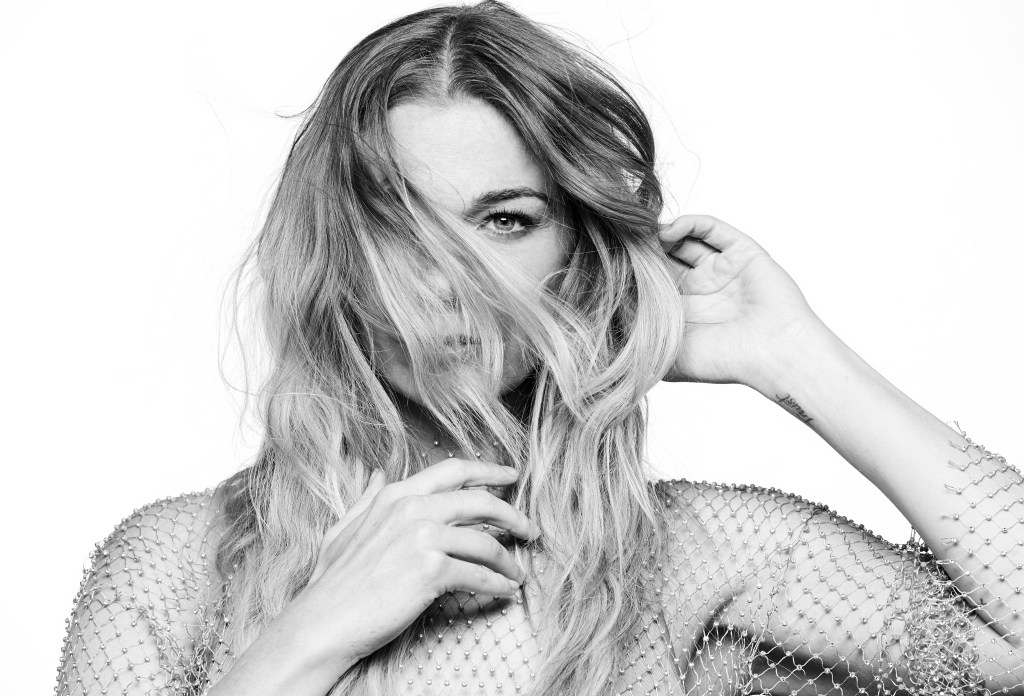
Norman Seeff
In recent years there have been more conversations around the sexism young women in the spotlight faced from the media in the '90s and early 2000s. You've spoken before about the trauma of child stardom and the empathy you have for Britney Spears — if you feel comfortable, could you share how you navigated fame as a teenager and how growing up in the spotlight impacted you? What helped you get through it?
If I'm being really honest, I don't think I "navigated" it. I've navigated years of therapy to help me come to terms with growing up in the spotlight, but child stardom kind of has its way with you. No one can prepare an adult for a life in this industry, much less a child. The impact of having the whole world's eyes and opinions placed upon you takes its toll one way or another. One of the things I'm most proud of is coming out on the other side of it and thriving. Not everyone has that experience.
Mickey Guyton, Brooke Eden and so many more artists have shared how you inspired them — what does it mean to you to have been (and continue to be) a beacon for aspiring artists?
It blows me away when artists that I love share their stories with me, especially one as sweet as Mickey's. I recently sat down with Mickey, Carly Pearce, Ashley McBryde and Brandy Clark for my CMT Crossroads special and was overwhelmed to hear the impact that not only my songs, but my journey and the choices I've made in my career had on them all. It was a full circle moment for all of us and a major career highlight for me to share a celebration of 25 years of music with each of them.
I've always admired how you refused to be put in a box musically, even as a young artist.
I've always followed my gut, even from day one when I pulled the "Blue" demo out of the trash. To me, it's always been important to make music that I am proud of, and that I connected to in that moment, regardless of the 'genre.' If we are creating from the space of only fitting into one box, we are missing out on so much opportunity.
What have you learned about yourself through recording your podcast Wholly Human?
I kicked off my Wholly Human podcast with a solo episode on facing my fears. The whole idea terrified me at the start, and if I'm being honest, every now and then it creeps back in. I think learning to own that fear and push through it has been one of the biggest learnings. I'm super hands-on with the whole process and it gives me so much joy seeing everyone's messages when a new episode drops. I can't wait to start digging into season 4 very soon!
Just a couple years after the release of your debut album you were name-dropped in the Barenaked Ladies' No. 1 hit "One Week" — what was your reaction when you heard the song?
I remember where I was when I heard that song. I was laying on a bed in LA and my boyfriend at the time had just turned on the radio. This new song came on and all of a sudden, I heard my name. I honestly thought I was hearing things. I love the Barenaked Ladies. That song is forever a jam!
You've said creating your album god's work was a journey of reclamation -- what do you hope listeners take from the album? What did you learn about yourself throughout the process?
The reaction from the few ears that have listened to the record has been so exciting. We've been conducting our own little market research amongst friends to see which tracks people are drawn to and everyone has connected to each song in their own way. I think that's what makes this record so special. There is a through line of connection from start to finish, but the journey people are going on when listening is so unique. It will take you on a whole rollercoaster of emotions from start to finish, but my hope is that by the end you feel the intention and love that it was created with.
You collaborate with so many incredible artists on god's work -- what did it mean to you to share these moments of vulnerability and spirituality with fellow artists and friends?
I love experiencing other artists in their creative processes and the inspiration that comes along with that. We created most of god's work during the pandemic, which meant we couldn't all be in the room together when recording, which was a first for me, but that didn't stop us from creating... we just got to do it wearing sweats in our homes.
Everyone involved in this project from the featured artists, musicians and the entire team behind the scenes, brought so much heart and talent to god's work and I couldn't be more proud of the record we created together.
